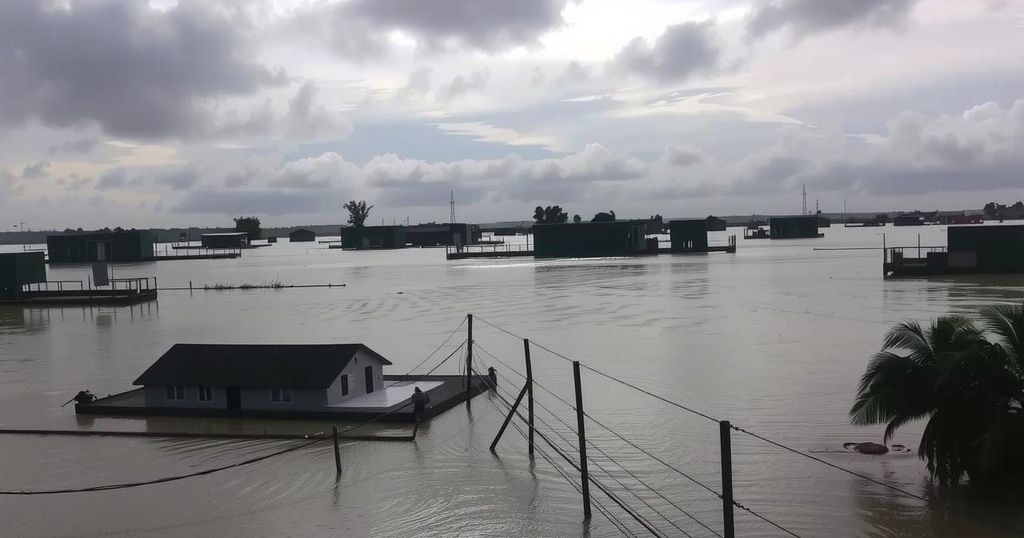Severe Flooding Crisis Impacts Millions in Chad, Nigeria, and Cameroon
Severe flooding in Chad, Nigeria, and Cameroon has impacted over 2.7 million individuals due to torrential rains, resulting in significant property and agricultural destruction, heightening food insecurity. Action Against Hunger is advocating for immediate funding for emergency relief as the climate crisis intensifies these occurrences.
Severe flooding due to torrential rains has adversely impacted millions of individuals across Central and East Africa, particularly in Chad, Nigeria, and Cameroon. Recent reports indicate that more than 2.7 million people have been affected, including approximately 1.7 million in Chad, one million in Nigeria, and over 230,000 in Cameroon. The destruction of homes and agricultural fields has exacerbated food insecurity in a region already grappling with high hunger rates. Action Against Hunger has called for immediate funding to enable a rapid emergency response to assist the most vulnerable populations in these areas. In Chad, the relentless rains since late July have led to catastrophic flooding affecting multiple provinces, such as Lac, Mayo-Kebbi Est, Mandoul, Tandjilé, and Batah. The Sila province, which is currently hosting refugees from Sudan, has also seen severe impacts. To date, such flooding has resulted in the deaths of over 500 individuals and the destruction of more than 210,000 homes, extensive farmland, and livestock, posing an extremely high risk of hunger in a nation where 3.4 million people already face acute food insecurity. In Nigeria, flooding has wreaked havoc across states including Borno, Adamawa, and Yobe, causing significant displacement and impeding access to essential resources. Prior to the floods, food insecurity already affected over 32 million people nationwide. The inundation of Maiduguri, Borno’s capital, has left over 414,000 residents at risk. Meanwhile, in Cameroon, the Far-North region has witnessed the impact of floods on an estimated 236,000 people, with extensive crop loss and heightened fears of waterborne diseases. Infrastructure breakdowns have led to further displacements, escalating the urgent need for food, shelter, and clean water. The climate crisis plays a crucial role exacerbating these issues, with extreme weather events becoming more frequent and severe, leading to increased displacement and water scarcity.
The article discusses the severe flooding that has struck Central and East Africa, particularly in Chad, Nigeria, and Cameroon, following torrential rainfalls. It highlights the staggering number of people affected by these natural disasters, the extensive damage caused to habitats and agricultural resources, and the rising concerns regarding food security and public health due to these emergencies. Action Against Hunger’s response efforts and the dire need for funding are emphasized in order to assist those most vulnerable to the impacts of climate-related events.
The flooding crisis in Chad, Nigeria, and Cameroon has resulted in significant humanitarian challenges, with millions facing hunger, shelter, and health issues. Immediate action is necessary to mobilize support for the affected populations as the impacts of the climate crisis continue to exacerbate vulnerability in these regions. Urgent funding and an organized humanitarian response are crucial to alleviate the unfolding disaster and to prepare for longer-term recovery efforts.
Original Source: www.actionagainsthunger.org




Post Comment